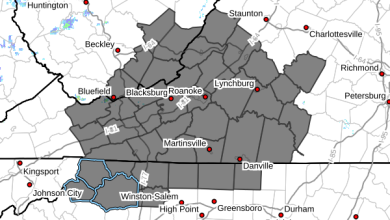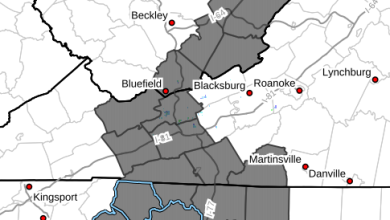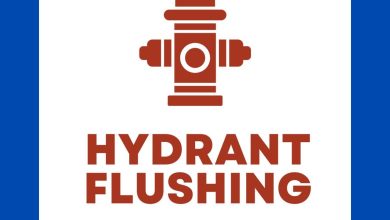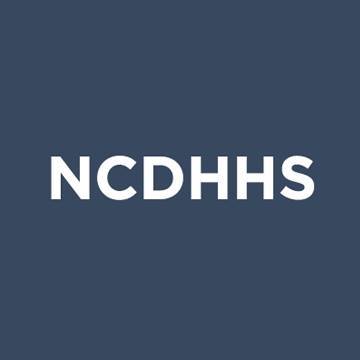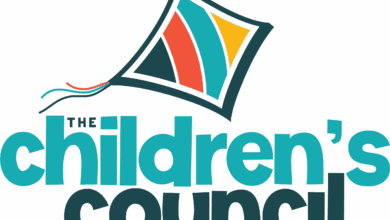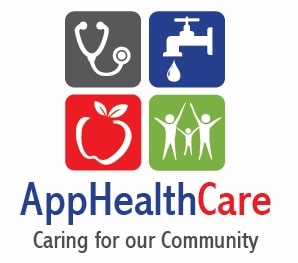
Last Updated on February 12, 2022 7:05 pm
Boone, NC – AppHealthCare has confirmed three cases of COVID-19 among subcontractors working on Appalachian State University’s campus. Two individuals are Watauga County residents whose last days on campus were May 16 and May 22, respectively. The other individual, whose last day on campus was May 20, is not a resident of Watauga County.
These individuals have fully cooperated with isolation instructions and are recovering at home. Public health staff have identified close contacts, and they are in quarantine and will be provided access to testing during their quarantine period.
The total confirmed case count for Watauga residents is 14 with 5 individuals who have active cases that are in isolation and 18 others who are in quarantine due to risk of exposure. Additional data can be found on the AppHealthCare website dashboard. It will be updated regularly.
“We continue to work diligently to protect our community and quickly adapt as we respond to this rapidly evolving situation. We appreciate the community’s effort in doing their part in slowing the spread of COVID-19. We know this remains a stressful and anxious time for each of us and appreciate each person’s sacrifice and willingness to take action as we respond to this challenge. This virus will be with us for a while, so I encourage everyone to take action to slow the spread. Please, show your care for others by practicing the 3Ws: wear a cloth face covering, wait 6 feet from others and wash your hands frequently or use hand sanitizer,” stated Jennifer Greene, Health Director, AppHealthCare.
Additionally, AppHealthCare and App State are partnering together with all construction contractors working at the university to conduct broader testing at worksites, including those that have not experienced a positive case to date.
App State will continue to keep the university community informed about verified, positive cases that impact university students, faculty and staff. The latest updates regarding App State’s response to COVID-19 may be found at appstate.edu/coronavirus.
How to Protect Yourself
● Practice the 3Ws if you have to leave your house – Wear a cloth face covering, Wash your hands frequently or use hand sanitizer and Wait 6 feet from others.
● Cover your cough or sneeze
● Keep distance from others who are sick
● Avoid touching your face
● Clean and disinfect high touch surfaces in common areas like doorknobs, remotes, lightswitches, tables and handles
● If you are at a higher risk for severe illness from COVID-19, stay home to the greatest extent possible to decrease the chance of infection.
COVID-19 (novel coronavirus) Signs & Symptoms
Symptoms may appear 2-14 days after exposure. According to the CDC, people with COVID-19 have had a wide range of reported symptoms.
● Fever
● Cough
● Shortness of breath or difficulty breathing
● Chills
● Repeated shaking with chills
● Muscle pain
● Headache
● Sore throat
● New loss of taste or smell
People at high risk include anyone who:
● Is 65 years of age or older
● Lives in a nursing home or long-term care facility
● Has a high-risk condition that includes:
○ Chronic lung disease or moderate to severe asthma
○ Heart disease with complications
○ Compromised immune system
○ Severe obesity – body mass index (BMI) of 40 or higher
○ Other underlying medical conditions, particularly if not well controlled, such as diabetes, renal failure or liver disease
People who are at high risk should stay home to the greatest extent possible to decrease the chance of infection.
Testing
You should be tested if:
● You believe you have symptoms of COVID-19
● If you have no symptoms and you are at higher risk for severe illness (you are 65 or older, you have an underlying health condition or chronic condition), or have been in close contact with someone who is known to have a positive result.
● If you are someone working in a frontline role or essential business where social distancing is hard to maintain
● If you are a first responder, law enforcement officer, fire department staff member, or healthcare staff member, please reach out if you would like to be tested
● If you live in or work in a facility where social distancing is hard to maintain, like congregate living, healthcare facilities or home care
For testing, call your healthcare provider or AppHealthCare. Please do not just show up to a healthcare provider without calling first. This will help your provider prepare should you need to be tested and lessen the potential exposure to others. AppHealthCare will serve anyone, regardless of their ability to pay. As is our usual day-to-day practice, a patient will not be turned away due to inability to pay.
Members of the App State community who are concerned about symptoms they might be experiencing can contact Student Health Service at (828) 262-3100 or AppHealthCare at (828) 264-4995.
If you have a medical emergency, please call 911 immediately.
Managing Your Overall Health
During this time, it is important to manage your overall health. There are resources available if you need to reduce anxiety or stress, are experiencing suicidal thoughts, need to better manage chronic conditions and more. Visit the North Carolina Department of Health and Human Services website.
AppHealthCare is available and on-call 24/7 to respond to public health emergencies. To reach us, call (828) 264-4995 anytime and follow the prompts. AppHealthCare has set up a COVID-19 hotline at 1+ (828) 795-1970 for information during regular business hours. We will continue to monitor COVID-19 in our community and will work to keep the public informed. Please visit our website for more information – www.AppHealthCare.com. You can also follow us on Facebook and Twitter.
Questions from agencies requesting support on COVID-19 response, planning efforts, etc. can contact preparedness@apphealth.com.
Additional Resources
Centers for Disease Control & Prevention (CDC) website at cdc.gov/coronavirus.
North Carolina resources can be found on the Division of Public Health website at ncdhhs.gov/coronavirus. To view the case count for North Carolina, including a county map, please visit the NC DHHS website here.
App State has a dedicated website about its response to COVID-19.
A COVID-19 toll free helpline has been set up to answer general, non-emergent questions at 1-866-462-3821. To submit questions online, go to www.ncpoisoncontrol.org and select “chat.”







